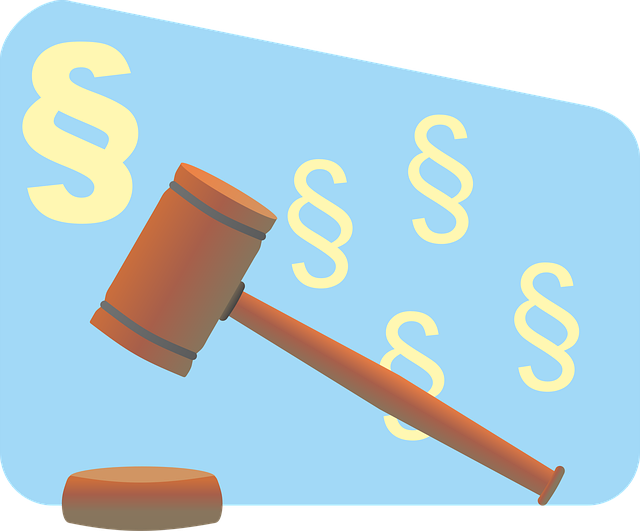Antitrust violation cases are high-stakes legal battles focusing on fair market competition. The "Criminal Procedure Timeline from Arrest to Trial" involves regulatory investigations, charges, pre-trial motions, discovery, and ultimately, a jury trial. Defense strategies aim to disprove anti-competitive intent, with severe consequences for guilty verdicts. Notable cases like United States v. Standard Oil Co. and United States v. AT&T have shaped corporate behavior through landmark outcomes, emphasizing the structured nature of antitrust enforcement within criminal procedure timelines.
“Antitrust violation cases are a critical aspect of maintaining fair competition in markets worldwide. This comprehensive guide delves into the intricate world of antitrust enforcement, from understanding the fundamental principles to navigating the complex criminal procedure timeline from arrest to trial. We explore key stages, rights for accused individuals, and historical case studies, offering an insightful overview of this impactful legal domain.”
- Understanding Antitrust Violation Cases: A Comprehensive Overview
- The Criminal Procedure Timeline: From Initial Investigation to Courtroom
- Key Stages in Antitrust Enforcement: Pre-Arrest and Post-Trial Processes
- Legal Rights and Protections for Accused Individuals in Antitrust Litigation
- Historical Case Studies: Significant Milestones in Antitrust Violation Trials
Understanding Antitrust Violation Cases: A Comprehensive Overview

Antitrust violation cases are a critical aspect of corporate law, focusing on maintaining fair competition in the marketplace. These high-stakes cases involve complex legal strategies and often become pivotal moments in a company’s history. Understanding the process is essential for both businesses and legal professionals. The criminal procedure timeline from arrest to trial provides a framework for these cases, ensuring a structured and fair approach.
In such scenarios, a white collar defense strategy becomes paramount. Prosecutors must prove beyond a reasonable doubt that an individual or entity has engaged in anti-competitive practices, often involving extensive evidence gathering and analysis. The consequences of these cases can be severe, impacting not just the financial health of the company but also its reputation in the industry. As with any white collar and economic crime, a meticulous understanding of the facts and legal precedents is crucial to navigating this labyrinthine process successfully.
The Criminal Procedure Timeline: From Initial Investigation to Courtroom

The journey from initial investigation to a courtroom trial for antitrust violation cases involves a complex criminal procedure timeline. This process begins with an investigation by regulatory bodies or law enforcement agencies, which may lead to an arrest and subsequent charging of individuals or corporations suspected of anti-competitive practices. Once charged, the accused will face a series of legal proceedings designed to ensure a fair trial.
The timeline encompasses several stages, including pre-trial motions, discovery where evidence is exchanged between parties, and pretrial hearings. Throughout this period, both prosecution and defense strategize and prepare their cases. The ultimate goal for the defense could be a complete dismissal of all charges, especially if they can prove that the actions were not anti-competitive but rather beneficial to philanthropic and political communities across the country.
Key Stages in Antitrust Enforcement: Pre-Arrest and Post-Trial Processes

The key stages in antitrust enforcement unfold along a structured criminal procedure timeline from arrest to trial. Initially, pre-arrest processes involve thorough investigations by regulatory bodies like the Federal Trade Commission (FTC) or Department of Justice (DOJ). They gather evidence, analyze market data, and assess potential violations against competition laws, such as price-fixing, market allocation, or merger control. This meticulous phase is crucial for building a solid case.
Post-arrest, the focus shifts to for his clients—a strategic defense strategy. Accused companies or individuals assemble legal teams with expertise in antitrust law to challenge the allegations. Court proceedings include motions to dismiss, discovery of evidence, expert witness testimonies, and final arguments. The goal is to achieve extraordinary results by presenting a compelling defense, leveraging an unprecedented track record of successful case management, and ensuring fairness throughout the criminal procedure timeline from arrest to trial.
Legal Rights and Protections for Accused Individuals in Antitrust Litigation

In antitrust violation cases, individuals accused of participating in anti-competitive practices enjoy certain legal rights and protections. The criminal procedure timeline from arrest to trial is designed to ensure fairness and due process. Initially, law enforcement agencies investigate potential violations, gathering evidence and consulting with prosecutors. If charges are filed, the accused person is informed of the accusations against them and has the right to legal representation. In high-stakes cases across the country, the focus shifts to complex legal arguments, extensive discovery processes, and expert witness testimonies.
The defense team can challenge the prosecution’s case, raising questions about the admissibility of evidence, the validity of allegations, and potential violations of civil liberties. Throughout this process, the accused maintains the presumption of innocence until proven guilty beyond a reasonable doubt. Jury trials play a pivotal role in these cases, as they ensure that the verdict is made by peers who represent the broader community, adding a layer of transparency and accountability to the legal system.
Historical Case Studies: Significant Milestones in Antitrust Violation Trials

Antitrust violation cases have left an indelible mark on business history through significant milestones that still resonate today. One of the most notable historical case studies is the United States v. Standard Oil Co. trial in 1911. This landmark case, decided across the country, exposed a vast conspiracy among leading oil companies to fix prices and divide markets, resulting in a complete dismissal of all charges against John D. Rockefeller and his associates. The judgment broke up Standard Oil into smaller entities, marking a pivotal moment in antitrust enforcement.
Another influential trial was United States v. AT&T in 1974. This lengthy legal battle resulted in a revolutionary settlement, leading to the breakup of the telecommunications giant. The case’s outcome emphasized the importance of antitrust laws in promoting competition and preventing monopolies from stifling innovation. Over time, these trials have shaped corporate behavior, fostering a more competitive business environment and ensuring winning challenging defense verdicts for all parties involved.
Antitrust violation cases, as explored in this comprehensive guide, navigate a intricate legal landscape. From initial investigations to courtroom trials, understanding the criminal procedure timeline is paramount. Key stages, including pre-arrest and post-trial processes, highlight the dynamic nature of antitrust enforcement. By examining historical case studies and appreciating the rights of accused individuals, we gain valuable insights into this evolving field. Remember that, in navigating these complex cases, a thorough grasp of both legal protections and strategic enforcements is essential to justice.






